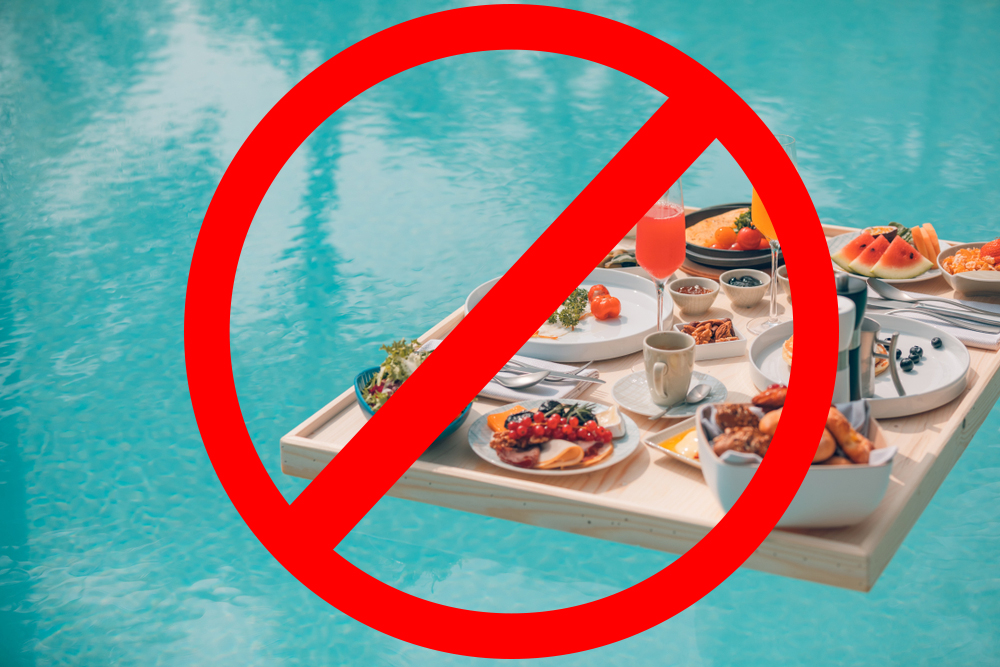
If this picture makes you immediately cringe, you’re on the right track. Unfortunately plenty of first-time pool owners and uninformed guests can make potentially disastrous decisions around pools that could leave you with either an expensive and time consuming cleanup, or facing a potential legal battle. Let’s outline some of the common mistakes and how an informed pool owner can avoid them.
1.) Unattended Children
I shouldn’t really have to go into detail on why you should never leave children unattended in a pool. According to the Consumer Product Safety Commission (CPSC): “350 children under the age of five drown in pools each year nationwide. The majority of the deaths occur in June, July and August; most in backyard pools.” As a pool owner it is your legal responsibility to ensure the safety of children in your pool. In the state of Florida we have an entire section in state law regulating Residential Swimming pools called the “RESIDENTIAL SWIMMING POOL SAFETY ACT”. Located Here, it specifically refers to regulations surrounding safety features to prevent children from wandering into a pool. This should be discussed with you by any pool builder prior to breaking ground and discussed with a realtor if you are purchasing a home with an existing pool.
2.) No Food in The Pool
Like the image outlines at the top of the article, bringing food into the pool can seem like an Instagram opportunity, but in reality dropped food in your pool can end up a costly and time-consuming mistake. The chemical balance of your pool needs to be closely maintained to ensure you don’t have bacterial growth.
Dropping a plate of food into your pool involves skimming as much of the detritus out of the pool manually before it hits your filter. Then you will have to run the pool vacuum over what you cannot skim out by diving in and pulling it over the content manually. You will then have to immediately clean your pool filter and trap to make sure all of the content is removed from the system. You will also have to closely test the ph balance of your pool water and apply appropriate amounts of chlorine to bring it back to a steady state.
That’s quite a lot of work for what could have easily been avoided. And remember the old adage “don’t swim at least 45 minutes after eating”.
3.) No Glass Containers Near the Pool
Finding broken glass on the bottom of your pool is like finding a needle in a haystack. This is one I’ve actually learned from experience. It took several hours and lots of patience to fish out every piece of glass on the pool floor. Even then I was still nervous I had missed some and it would end up lodged in the bottom of someones foot!
We recommend having hard plastic drinkware just for the pool area. It’s a small price to pay for having peace of mind
4.) Urinate in Your Pool
Listen, just don’t do it. Not only is it extremely unhygienic, it will adversely effect the chlorine balance of your pool if done frequently. That means more Ph testing, more chlorine, and more trips to the pool supply store. Just don’t do it.
On an interesting side note, we all have heard the rumor that some pools have dyes that change color if you pee in the pool. This has been proven false. We’re all on the honor system here.
5.) Diving in the Pool
I know we sound like a major killjoy here, but most residential swimming pools simply aren’t deep enough to practice your Olympic diving skills. According to The American Red Cross, the minimum depth for diving is 9 feet deep. The vast majority of residential pools do not approach this depth, as it is cost-prohibitive.
And if you aren’t going to listen to our recommendation here, at least start out feet-first to test the water depth!
Stay safe and responsible swimmers!

Comments